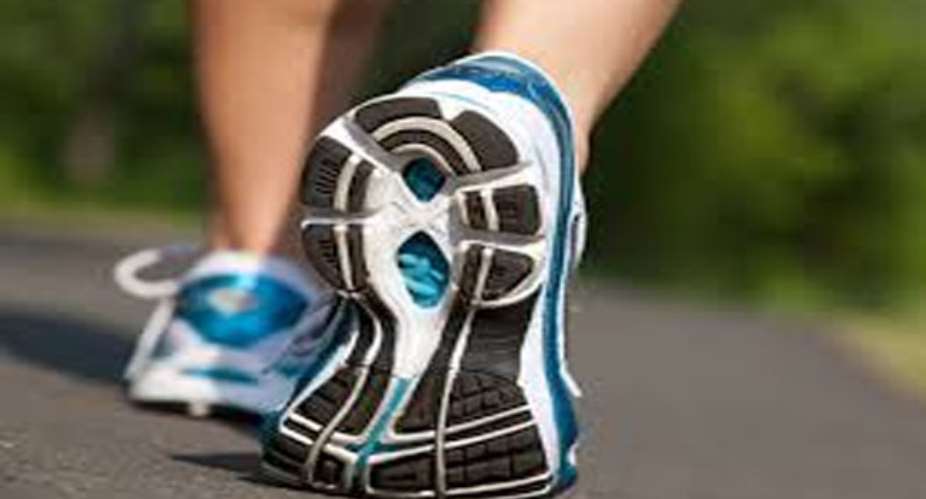As we transition into Spring, take advantage of the nice weather and plan a few walks or hikes this month. April 1st does not have to be the only day we can celebrate “Walking Day.” Instead, we can use it as a theme for the month of April. Just like a car needs a healthy supply of fuel, walkers also need to make sure their body is fueled before a long journey in order to have good stamina and get most out of the exercise. However, too much food before a walk can leave you feeling uncomfortable. It's not just filling up that's important either, it's what you eat and at what time that matters. Follow these simple guidelines to make sure our body gets enough fuel for energy and better performance as well as to prevent any stomach discomfort, hunger or fatigue: Before the Walk:
- Don't start on an empty stomach. Try to have at least a light snack before you head out since your body has been fasting all night. Without available calories, it will be harder to work out as intensely or for a longer period of time.
- 30-90 minutes before exercise – If you want to eat close to your walk or workout time, focus on an easily digested carbohydrate snack for a quick fuel boost such as a banana, low-fat bagel or English muffin, or low-fat yogurt.
- 1-3 hours before exercise – Eat a light, low-fat meal to get the benefit of the calories with less risk of stomach distress. Try half a chicken or turkey sandwich on whole
- wheat bread or low-fat yogurt with a sliced banana.
- Wait 3-4 hours after eating a large meal before working out – a big breakfast will take about 3-4 hours for the body to digest the fats and proteins. It is better to have a light breakfast before a morning walk and save the bigger meal for afterwards. Otherwise, time your workout accordingly to give your body time to digest so that you won't feel discomfort during the exercise.
- See what works for you – people vary in how well they perform during exercise and how much is eaten or not eaten before a workout. Foods that sit well in the stomach when not exercising may or may not produce nausea or gas when combined with exercise. Experiment to see what works best for you.
During the Walk:
For a long journey, it is important not to neglect your liquid intake. Make sure to take plenty of water with you, but avoid downing large quantities at a time as this may cause stomach discomfort. A steady stream of fluids will keep you well hydrated and provide your body with fuel to keep going. It's good practice to have a swift intake of water every 20 minutes or so to keep refreshed. Occasional snacks are good to have on hand to keep both morale and energy up. Ideal snacks for nutrition on the go include:
- Peanut butter and jelly sandwiches
- Whole wheat sandwiches containing lean meat or tuna
- Fruit smoothies
- Cereal, fruit, and energy bars
- Apples, grapes, bananas, dried fruit
After the Walk:
Good nutrition does not stop when you've finished your journey or workout. Eat a balance of carbohydrates and protein within an hour of finishing your walk or workout, helping your muscles to recover and to restore lost energy. Also, maintain your fluid intake once you've finished as well.
Walkers/exercisers who think carefully about what they eat and the timing of their meals and snacks are likely to reap the benefits while exercising. If done correctly, they will likely see a noticeable improvement in walking performance and general fitness.
SOURCE: http://skinnygeneproject.dreamhosters.com





 Dumsor: Don't rush to demand timetable; the problem may be temporary — Atik Moha...
Dumsor: Don't rush to demand timetable; the problem may be temporary — Atik Moha...
 Space X Starlink’s satellite broadband approved in Ghana — NCA
Space X Starlink’s satellite broadband approved in Ghana — NCA
 2024 election will be decided on the grounds of the economy; choice of running m...
2024 election will be decided on the grounds of the economy; choice of running m...
 Dumsor: We're demanding less; just give us a timetable — Kwesi Pratt to ECG
Dumsor: We're demanding less; just give us a timetable — Kwesi Pratt to ECG
 Do I have to apologise for doing my security work, I won’t – Simon Osei-Mensah r...
Do I have to apologise for doing my security work, I won’t – Simon Osei-Mensah r...
 All my businesses have collapsed under Akufo-Addo — NDC Central regional chair
All my businesses have collapsed under Akufo-Addo — NDC Central regional chair
 Military, Prison Officers clash in Bawku, three injured
Military, Prison Officers clash in Bawku, three injured
 GRA-SML contract: MFWA files RTI request demanding KPMG report
GRA-SML contract: MFWA files RTI request demanding KPMG report
 Court threatens to call second accused to testify if NDC's Ofosu Ampofo fails to...
Court threatens to call second accused to testify if NDC's Ofosu Ampofo fails to...
 Family accuses hospital of medical negligence, extortion in death of 17-year-old...
Family accuses hospital of medical negligence, extortion in death of 17-year-old...
